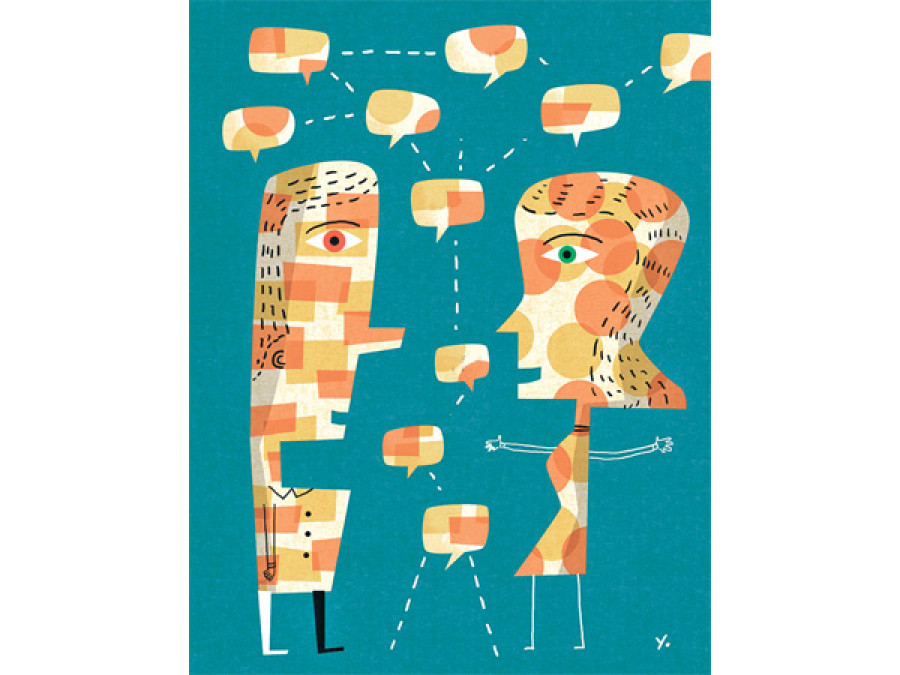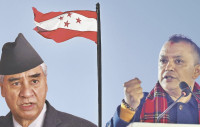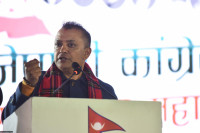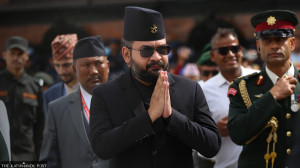Opinion
Survivors, not victims
The use of certain terms in the post-disaster discourse seems to be disempowering earthquake survivors
Prem Phyak
As a result, criticism of the government’s uncoordinated rescue, relief and recovery efforts has already dominated the public sphere. The role of the government is no doubt central to nation-rebuilding process. Even so, every individual, including the media, has to maintain some ethical considerations in the recovery and rebuilding processes.
Language matters
Language is not only key to effective communication, but also a sociocultural construct that indicates our perspectives and views towards others. It creates discourses that reproduce particular worldviews about people, society, and the ways of doing things. Language includes the selection of particular words/phrases and tones, and gesture (body language).
The language we use has the ability to empower or disempower the people. In all the stages of disaster—rescue, relief, recovery and rebuilding—it is necessary to embrace the use of local languages to reach out to and effectively communicate with the local communities. For example, the use of Tamang in Sindhupalchok/Rasuwa, Thangmi in Dolakha, and Gurung in Gorkha should not be ignored by all the individuals and organisations that work with these communities. People in these communities cannot effectively communicate in Nepali, and forcing them to speak Nepali may not be the best way of represent their needs and concerns.
Language also creates categories that might be disempowering. Here I cite a few examples based on my close observation of media discourses. The disempowering ways in which language is used include the way both the local and global media are describing the earthquake ‘survivors’ as ‘victims’ (pidit in Nepali). Here are some examples: ‘Nepal earthquake: Victims treated on hospital floor’ (BBC), ‘Nepal earthquake victims overwhelm’ (CNN), ‘Admire Nepal to help earthquake victims’ (TKP), and ‘Global effort to help Nepal earthquake victims intensifies’ (Republica). Social media platforms such as Twitter, Facebook and YouTube constantly reproduce this term. And most importantly, NGOs/INGos and volunteer groups raising funds to support the recovery and relief operations further highlight this term. While the word, in simple terms, refers to the people who are suffering from the disaster, it represents survivors as ‘passive’ and ‘helpless’. The term ‘victim’ ignores the lessons we can learn from these survivors. We should not forget the fact that they have witnessed and experienced a
massive disaster, and their stories can serve as a resource for rebuilding the country.
Another troubling discourse that is being reproduced on social media is that of poverty. For example, in the headline ‘Nepal earthquake: what the thousands of victims share is that they are poor’, the survivors are simultaneously labelled as ‘victims’ and ‘poor’. The discourses on poverty in Nepal and in other Third World contexts are largely shaped by the Western ideology of market-based economy, which largely makes invisible the economic activities of women, farmers, indigenous communities, and Dalits. The current recovery and rebuilding discourses are reproducing the same ideology. For example, the government has recently decided to provide Rs 15-25 lakhs loan to the survivors. The decision was based upon the assumption that people who live in cities are rich and the value of their houses is higher than that of the villagers’. This kind of language is very discriminatory and disempowering for the people in Langtang, for example, who have lost their hotels in a major tourist destination. Such categorisation of people in terms of their geographical background creates a hierarchy among survivors and devalues the contribution of rural farmers, among others, to the nation’s economy.
Likewise, the term ‘donor’ has also become very popular these days. The government has recently unveiled plans to organise a donor’s meeting in Kathmandu to seek more support from the international community. The term valorises the power and role of the international community and diminishes Nepal’s own role, ability, and resources to rebuild the country.
Not beggars
Now let me discuss some other scenarios that can be observed on social media. There are many people, particularly those belonging to volunteer groups, who are working really hard and helping survivors. Some of them don’t care about the documentation, dissemination, and recognition of their works, so they don’t even make their efforts public. On the other hand, we get to see the so-called ‘generous supporters’ collecting some boxes of Wai-Wai, mineral water bottles and chiura and driving their vehicles loaded with the supplies till where they can travel to. There, they gather and line up some survivors (mainly women, the elderly and children), take pictures and distribute their ‘relief’ goods. The scene, as circulated on social media, projects survivors as ‘beggars’ and volunteers as erstwhile ‘landlords’. It is quite ridiculous to observe some so-called relief providers carrying fancy cameras on one hand while handing out a tarp to survivors with the another.
New ways
The use of certain terms in the post-disaster discourse seems to be disempowering earthquake survivors. While both the government and non-governmental organisations are busy making plans and policies to rebuild the country, the engagement of survivors
in this process has not received adequate attention. International experience shows that the participation of disaster survivors during the planning phase not only empowers them, but also ensures their ownership in the recovery and rebuilding process. This disaster has given us an opportunity
to develop and implement an inclusive, empowering and bottom-up approach to nation-building. We just need to reframe our use of languages/discourses and policies from the ‘what-we-have’ perspective and not ‘what-we-do-not-have’. We should embrace the non-negotiable principle that survivors are not beggars; they are key agents in recovery and rebuilding processes.
Phyak is a PhD candidate at the Department of Second Language Studies, University of Hawaii, the US




 9.12°C Kathmandu
9.12°C Kathmandu










